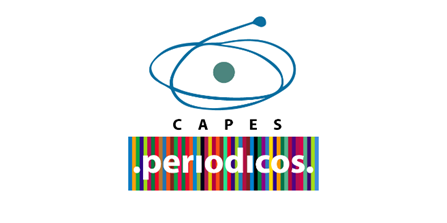JUDICIALIZATION OF DELIBERATIVE POLITICS AND DEMOCRACY IN BRAZIL: DETERMINANTS FOR EXPANSION OF POPULAR PARTICIPATION THROUGH THE JUDICIAL POWER
DOI:
https://doi.org/10.14210/rdp.v17n3.p729-754Keywords:
Judicialization of politics, deliberative democracy, law and political political systemAbstract
Contextualization of the theme: The 1988 Constitution conferred important functions on the Judiciary, which, from that point onwards, began to influence and interfere in the performance of the other Powers. Citizenship also instigated the population to be more active and participatory in the management of the State and thus there was a popular appeal for the democratization of deliberative processes that could open space for the participation of society. Faced with the frustration with the representation of democratically elected politicians, society saw in the Judiciary a way to enforce its rights, to influence and even intervene in the other Powers.
Gols: The article analyzes the correlation between the Judicialization of politics and deliberative democracy in Brazil, pointing out some determinants for the expansion of popular participation through the Judiciary.
Methodology: The methodology used was hypothetical-deductive through the analysis of secondary sources that deal with the judicialization of politics and deliberative democracy in general and also specifically in the Brazilian context.
Results: It was possible to conclude that the Judicialization of politics and deliberative democracy in Brazil are correlated to the extent that the expansion of the Judiciary Power, through its responsibilities and constitutional mechanisms, influence and even intervene in the political performance of other powers, making room for the population to have greater access to this Power.
Downloads
References
Referências das Fontes Citadas
BARBOZA, Estefânia Maria de Queiroz; KOZICKI, Katya. Judicialização da política e controle judicial de políticas públicas. Revista Direito GV, São Paulo. Jan-Jun 2012. DOI: https://doi.org/10.1590/S1808-24322012000100003
BARIFOUSE, Rafael. STF aprova a criminalização da homofobia, BBC Brasil, 13 junho 2019. Disponível em: <https://www.bbc.com/portuguese/brasil-47206924>. Acesso em: 10/07/2020.
BARROSO, Luís Roberto. Judicialização, ativismo e legitimidade democrática. Suffragium - Rev. do Trib. Reg. Eleit. do Ce, Fortaleza, v.5.n.8, jan/dez. 2009.
FARIA, Cláudia Feres. Democracia deliberativa: Habermas, Cohen e Bohman. Lua Nova. 2000, n.50. Disponível em: <https://doi.org/10.1590/S0102-64452000000200004>. Acesso em: 10/07/2020. DOI: https://doi.org/10.1590/S0102-64452000000200004
GABRIEL, José Luciano. Liberdade religiosa e estado laico brasileiro: uma abordagem à luz de Habermas e do direito. Rio de Janeiro: Gramma, 2018, p. 70.
HABERMAS, Jurgen. Direito e democracia: entre facticidade e validade. Volume II. Rio de Janeiro: Tempo Brasileiro, 1997.
HABERMAS, Jürgen. Teoria do agir comunicativo: racionalidade da ação e racionalização social. São Paulo: Martins Fontes, 2012, p. 35.
HIRSCHL, RAN. O novo constitucionalismo e a judicialização da política pura no mundo. Revista de Direito Administrativo, Rio de Janeiro, v. 251, mai. 2006. DOI: https://doi.org/10.12660/rda.v251.2009.7533
KOERNER, Andrei. Ativismo Judicial? Jurisprudência constitucional e política no STF pós-88. Novos Estudos, n. 96, jul. 2013. DOI: https://doi.org/10.1590/S0101-33002013000200006
LOPES, Nairo José Borges. O que é Judicialização da Política? JUS. 2016. Disponível em: <https://jus.com.br/artigos/50237/o-que-e-a-judicializacao-da-politica>. Acesso em: 02/07/2020.
MELLO, Pedro Santoro de; SANTA RITA, Vitor. A Judicialização da Política no Brasil: os Desafios, os Limites na Atuação do Judiciário e a Defesa Dos Princípios Constitucionais. mbito Jurídico. 2019. Disponível em: <https://ambitojuridico.com.br/edicoes/revista-182/a-judicializacao-da-politica-no-brasil-os-desafios-os-limites-na-atuacao-do-judiciario-e-a-defesa-dos-principios-constitucionais/>. Acesso em: 02/07/2020.
VIANA, Lorena Mesquita Silva. Judicialização da política e democracia deliberativa: legitimidade da decisão judicial. Revista Eletrônica de Direito da Faculdade Estácio do Pará – Belém, v. 4, n. 5, Jun. 2017.
VIEIRA, Oscar Vilhena. Supremocracia. Revista Direito GV. São Paulo, v. 4, jul./dez. 2008. DOI: https://doi.org/10.1590/S1808-24322008000200005
Downloads
Published
How to Cite
Issue
Section
License
Na qualidade de autor(es) da colaboração, original e inédita, sobre o qual me(nos) responsabilizo(amos) civil e penalmente pelo seu conteúdo, após ter lido as diretrizes para autores, concordado(amos) com o Regulamento da Revista Eletrônica Direito e Política e autorizo(amos) a publicação na rede mundial de computadores (Internet), permitindo, também, que sua linguagem possa ser reformulada, caso seja necessário, sem que me(nos) seja devido qualquer pagamento a título de direitos autorais, podendo qualquer interessado acessá-lo e/ou reproduzi-lo mediante download, desde que obedeçam os Direitos Autorais.

















